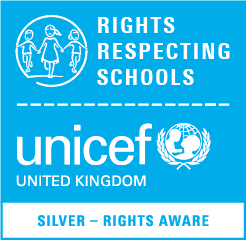Dorrington Academy SEN Information Report
1. What kinds of Special Educational Needs does Dorrington Academy make provision for? What type of provision does Dorrington Academy make and how do they know it works?
| Types of need and what that could look like | Examples of support in our school | How we check it is working |
| Cognition and Learning When children and young people learn at a slower pace than others their age, they may: have difficulty in understanding parts of the curriculum have difficulties with organisation and memory skills have a specific difficulty affecting one particular part of their learning such as literacy or numeracy | -Adapted learning resources -Effective differentiation -Small group intervention work -Agencies such as Pupil and School Support, Educational Psychologists and the Communication and Autism Team involved -1:1 Interventions for specific difficulties such as Word Wasp and Plus One | -On-going discussions with all staff, outside agencies involved. -Tracking of progress, all small steps celebrated as well as ITP targets -Termly ITP reviews – pupil and parent invited to contribute |
| Communication and Interaction When children and young people have speech, language and communication difficulties which make it difficult for them to make sense of language or understand how to communicate effectively and appropriately with others | -Learning Mentor support with social skills and the use of the sensory bus -Small group intervention work -Speech and Language therapy -WellComm Speech and Language intervention for early years -Flash Academy | |
| Social, emotional and mental health difficulties Children and young people may experience a wide range of social and emotional difficulties which present themselves in different ways. They may: –have difficulty in managing their relationships with other people –be withdrawn –behave in ways that may hinder their learning or have an impact on their health and well-being | -Learning Mentor support -Use of sensory room and sensory bus in school -Behaviour support liaison -Wellbeing week each half-term -Referral to Educational Psychologist | |
| Sensory and/or physical needs Where children and young people have visual and/or hearing impairments, or a physical need that means they they must have additional on-going support and equipment | -Use of sensory room in school -Sensory bus -Individual sensory boxes -Adapted resources such as visual aids and timetables |
2. Does the school have a Special Educational Needs co-ordinator? If so, who are they and how can someone get in touch with them?
- The Special Educational Needs Team Co-ordinators are Miss S Williamson and Miss C Allan. You can contact her on 0121 464 5330.
3. What approach does Dorrington Academy take to teaching pupils with SEN?
- Small intervention groups for Reading, Literacy and Numeracy
- Use of Birmingham Literacy and Numeracy toolkits to track and monitor progress
- Specific, targeted interventions for areas such as Reading, spelling and Speech and Language development
- Use of strategies following guidance and advice from outside agencies
- Activities linked to Individual target Plan (ITP) priorities
4. How does Dorrington Academy identify and assess Special Education Needs?
- All pupils are constantly tracked regarding progress and attainment
- Class Teachers raise specific concerns with Parents through detailed knowledge of pupils they teach, concerns are shared with the Special Educational Needs Co-ordinator (SENCo)
- Interventions are put into place and impact is assessed
- Pupils are assessed against the Language and Literacy Audit Continuum in the Autumn Term, targets are identified from this using an Individual Target Plan (ITP). Some pupils are also tracked on Maths Individual Target Plans
- Pupils with a diagnosis of autism can be assessed using sensory profiles.
5. How does Dorrington Academy know how much progress is being made by pupils with Special Educational Needs?
- Close tracking of progress each half term
- Termly ITP targets are reviewed and new targets are set
- All achievements are celebrated
6. What extra-curricular activities can a pupil with Special Educational Needs access at Dorrington Academy?
- All pupils are invited to attend extra-curricular activities. Some adaptation in provision may be required depending upon the Special Educational Need, which would be addressed on an individual basis. For example, adapted resources or additional peer support
- Attendance at cluster schools PE competitions for pupils with SEN and disabilities
- Support during educational visits off-site
7. What training do the staff at Dorrington Academy have in relation to pupils with Special Educational Needs?
- Training is adapted to the needs of specific children e.g. support with medical conditions such as Diabetes
- Dorrington Academy has an on-going Professional Development plan linked to School priorities
- Two members of staff are lead in ASD support
- Two members of staff are trained in Mental Health First Aid
- Examples of training undertaken include:
- Dyslexia Awareness
- ADHD awareness and strategies for support
- Asthma and allergy awareness training
- Diabetes training
- Epilepsy training
- Supporting pupils with Autistic Spectrum Disorder
- Differentiation to support ITP targets
- Supporting EAL pupils, use of Flash Academy resources
- Direct Instruction, including Precision Teaching training
- Attachment Awareness training
8. How is effectiveness of provision evaluated for pupils with SEN?
- Feedback from outside agencies regarding progress against targets, implementation of strategies
- Feedback from pupils and parents
- ITP tracking data
- Whole school data analysis
- Implementation of new resources such as Reda, Write Inc to develop phonics, spelling and reading skills
- Analysis of WellComm data to assess the effectiveness of speech and language interventions
9. How does Dorrington Academy get more specialist help for pupils if they need it?
At Dorrington Academy if we feel a pupil needs more specialist help we can work with the following people to get this:
- Speech and Language therapists (SALT)
- Pupil and School Support (PSS)
- Communication and Autism team (CAT)
- Educational Psychologist (EP)
- Physical Development Support Service (PDSS)
- Social Services
- School Nurse
- Forward Thinking Birmingham
10. What adaptations are made to the curriculum and learning environment?
- Disabled toilets
- Ramp access to the building
- Chair lift to the second floor
- Sensory room
- Adapted resources
11. How are parents of children and young people with Special Educational Needs involved in the education of their child?
- ITP targets are reviewed termly and parents are invited to contribute to them
- Regular feedback is given by the Class Teacher
- Parents are invited to attend Parents Evening meetings each term
- SENCO and Lead Practitioner available daily for advice and support
- End of year reports provide a summary of achievements throughout the year
12. How are pupils with Special Educational Needs involved in their own education?
- All pupils are Involved in their ITP reviews and discussions about setting new targets
- All pupils complete daily self-assessments regarding their Literacy and Numeracy work, giving them the opportunity to reflect on their own learning
- Pupils with specific diagnoses are involved in creating one-page profiles.
13. How does Dorrington Academy support emotional and social development including arrangements for listening to the views of pupils with SEN and measures to prevent bullying?
- Mrs Jane Best is the Learning Mentor. She provides support with social skills, raising confidence and self-esteem. In addition, she supports pupils with personal issues such as parental separation and bereavement.
- Mrs Jane Best has completed Mental Health First Aid training
- Key Stage Two pupils can attend a daily Worry Clinic during lunchtime, managed by Teaching Assistants who have been trained in counselling
- Dorrington Academy is a Unicef Rights Respecting School. Pupils rights are on display, shared daily in the classroom and during assemblies
- The RESPECT/PSHE curriculum covers topics such as bullying and friendships
- Each academic year we hold an Anti-Bullying week, giving the pupils the opportunity to explore issues and knowledge of where to gain support
- Every half-term, pupils and staff take part in a well-being week
14. What should I do if I have a concern about my child?
- Speak to your child’s Class Teacher and discuss your concerns
- Arrange an appointment to meet with the SENCO Miss Sarah Williamson
15. If a parent of a child with Special Educational Needs has a complaint about Dorrington Academy, how does the Governing Body deal with the complaint?
- The designated member of the Governing Body for inclusion would meet with parents and school staff in order to assess the current situation and implement strategies to address any issues. The Academy complaints policy would be followed accordingly.
16. How does the governing body involve other people in meeting the needs of pupils with Special Educational Needs including support for their families?
- The Governing Body ensure that the Special Educational Needs Co-ordinator has access to specific agencies as required and has received up-to-date training. The termly Headteacher report to the governing body highlights progress and provision for pupils with Special Educational Needs
17. Who are the support services that can help parents with pupils who have Special Educational Needs?
- Learning Mentor in school
- Birmingham City Council
- School Nurse Team
- SENDIASS
- Educational Psychologist
- Pupil and School Support (PSS)
- Communication and Autism Team (CAT)
- SENCO can arrange meetings for parents with outside agencies for assessment, feedback and strategies for support at home
- Information regarding parent support groups
18. How does Dorrington Academy support pupils with Special Educational Needs through transition?
- Pupils are supported with the transition to a new class within the academy by the Learning Mentor. Transition booklets and photographs are used to develop new relationships. Additional time is spent in new learning environments.
- Pupils moving from Nursery to Reception have a bespoke transition package where required, staff from Dorrington can visit children in their current settings
- Staff from local secondary schools are invited to visit in the Summer term and arrange personalised transition packages. Pupils attend additional transition days with the Learning Mentor supporting them
- Staff from local secondary schools are invited to attend Year 6 ITP reviews
19. How can parents find the Birmingham Local Authority’s local offer?
Visit www.localofferbirmingham.co.uk
Dorrington Academy Accessibility Plan
View document: Dorrington Academy Accessibility Plan
Upcoming Events
Events Calendar
25th October, 2024
Pink Day6th November, 2024
Reception Open Day 2024-25Open evening for new Reception parents for September will be Wednesday 6th November 4pm - 5pm.
7th November, 2024
Flu Vaccinations








